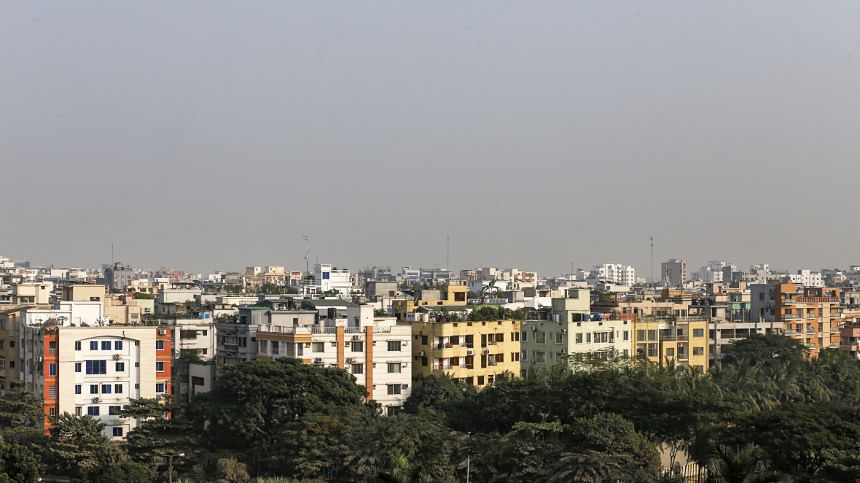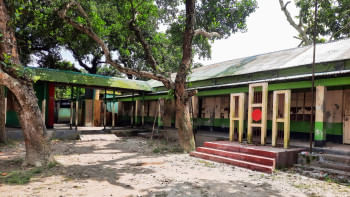Centralisation of opportunities in Dhaka

Dhaka is currently the fourth most populous city in the world, with around 2,000 people moving to the country's capital every single day. This influx is largely driven by the fact that many opportunities are still heavily concentrated in the capital, leaving those in other parts of the country with limited access.
Salsabil Imam, a software engineer based in Rajshahi, highlighted the challenges faced by job seekers outside of Dhaka, "Most job sectors are based in Dhaka, and the written exams for many reputed organisations are held there as well. For those of us without close connections in Dhaka, the stress of managing accommodation discourages many from applying to these jobs that would otherwise be a perfect fit."
She added that this issue disproportionately affects women due to safety concerns, giving Dhaka-based job seekers a significant advantage. "Those living in Dhaka can apply to multiple job openings which increases their chances of securing a decent job," Salsabil explained.
Echoing Salsabil's concerns, Tajrian Haque Laira, a student at East Delta University in Chattogram, remarked, "Just as job seekers outside Dhaka are discouraged from applying to multiple openings, university students from other cities are also often hesitant to participate in extracurricular activities and events, many of which are based in Dhaka."
Laira explained that business students often participate in various types of business competitions which employ practical applications of classroom lessons. However, she pointed out a major challenge, "The organisers of these competitions often expect us to travel back and forth between rounds, which is both physically and mentally exhausting. It's difficult to balance our health, academics, and personal lives when we have to make six to seven-hour-long journeys so frequently."
When asked whether virtual participation could help bridge the opportunity gap for students and employees residing outside Dhaka, Laira expressed doubts. She said, "I think these competitions are valuable networking events for university students. Online interactions don't offer the same opportunity to build meaningful connections."
Adding to this, Salsabil suggested, "Creating more remote job opportunities for people outside Dhaka could be a temporary solution. It would be beneficial for those who don't want to leave their families or the city they've lived in all their lives."
Salsabil added, "However, I wouldn't necessarily prefer working remotely. I've learned a lot from my colleagues during my time at my current workplace, and they've inspired many positive changes in me. I doubt that would have been possible if I worked remotely. Plus, one of the most enjoyable parts of my job is visiting sites and interacting with clients. I would miss out on these experiences if I worked from home."
University students aiming to pursue higher education often have to move to Dhaka as well. Mahjabeen Al Hussaini, a fifth-year medical student at Sylhet MAG Osmani Medical College Hospital, said, "Government hospitals in Bangladesh are structured across several levels to provide healthcare services nationwide. At the primary level, community clinics offer basic healthcare in rural areas. District hospitals provide secondary care, including surgeries and specialist services. At the tertiary level, medical college hospitals offer specialised treatments, while specialised hospitals focus on specific fields like cardiology, orthopaedics, and mental health."
Mahjabeen continued, "Medical college hospitals and specialised hospitals in Dhaka offer a wider variety of postgraduate courses compared to those in district hospitals. As a result, students studying in medical colleges attached to these hospitals often have no choice but to move to Dhaka after graduation, and patients frequently have to travel to the capital for better treatment."
University students and job seekers alike face significant challenges due to the centralisation of resources, often having to relocate to Dhaka for better educational and career opportunities. This exacerbates the city's already strained infrastructure and pushes it toward an unsustainable future. To tackle these problems, a well-planned decentralisation strategy is essential, focusing on expanding development and facilities to other regions of the country.
References:
1. World Population Review (2024). Largest Cities by Population 2024.
2. The Financial Express (November, 2023). Dhaka with an oversize population on verge of collapse.
3. BBC (December, 2023). How Bangladesh is supporting climate refugees.
Tazrin is a finance and banking student at Bangladesh University of Professionals (BUP). Convince her that she is not Thanos at [email protected].

 For all latest news, follow The Daily Star's Google News channel.
For all latest news, follow The Daily Star's Google News channel. 









Comments